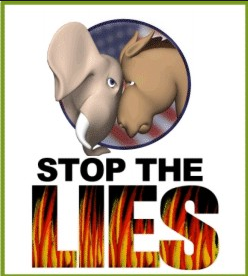 In a recent New York Times column, Paul Krugman highlights the rise of politically-motivated, outright falsehoods that are increasingly accepted as truths by the public. They are tacitly supported by politicians who know better; and by the public, which tends to accept what it hears. He writes, “(people) rely on what they hear from authority figures. The problem is that much of what they hear is misleading if not outright false.”
In a recent New York Times column, Paul Krugman highlights the rise of politically-motivated, outright falsehoods that are increasingly accepted as truths by the public. They are tacitly supported by politicians who know better; and by the public, which tends to accept what it hears. He writes, “(people) rely on what they hear from authority figures. The problem is that much of what they hear is misleading if not outright false.”
He asks, “..aren’t there umpires for this sort of thing — trusted, nonpartisan authorities who can and will call out purveyors of falsehood? Once upon a time, I think, there were. But these days the partisan divide runs very deep, and even those who try to play umpire seem afraid to call out falsehood.”
And, “Put it all together, and it’s a discouraging picture. We have an ill-informed or misinformed electorate, politicians who gleefully add to the misinformation and watchdogs who are afraid to bark. And to the extent that there are widely respected, not-too-partisan players, they seem to be fostering, not fixing, the public’s false impressions.”
Discouraging, indeed. It’s also visible in the attack on scientific facts, especially the overwhelming evidence about man-made climate change, which some continue to deny outright, and question the validity of science, itself. Here’s the full piece.
